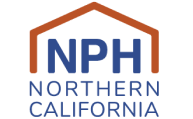ARCC Program Details
What: Anti-Racist Champions of Change (ARCC) is a one-year program designed to create safe space for us to come together to work toward dismantling oppressive power dynamics in the affordable housing movement and industry in the Bay Area. We do this by providing cohort-style training and support so that individuals and non-profit developer organizations are able to undergo a process of transformational change with the goal to create an affordable housing sector led by Black, Indigenous, People of Color (BIPOC) and their allies. From this transformed space, we can more effectively work together towards safe, stable, and affordable housing for all.
Leadership development isn’t an individual endeavor. It requires shifts from those currently in positions of power to re-examine how to share power in ways that foster authentic leadership across positions and throughout an organization. That’s why this is an organization-based program rather than an individual-based program.
Length: About 1 year.
Who: Each ARCC cohort is comprised of 4-6 participating non-profit developer organizations with 3-6 individual participants from each. Each organization sends 2-5 BIPOC managers/leaders (at least 3 are recommended) who are currently supervised by or regularly work closely with an executive-level leader (ex. CEO, COO, CFO). These BIPOC managers should not yet be a part of an executive suite. The executive-level supervisors are leaders in the field who are willing to support the emergence of BIPOC leadership in their organization and in the field more broadly. These executive leaders will participate separately in a parallel experience that centers on authentic solidarity to support their ability to be strong allies to BIPOC leaders.
ARCC is for organizations that:
- Are NPH member organizations
- Are Non-Profit Affordable Housing Developers
- Have enough staff where individual participants play a significant management role
- Have current diversity, equity, and inclusion (DEI) efforts (personal, team, organizational) happening at the executive level
- Have explicit DEI efforts and commitments for inclusivity currently underway (however, no specified level of effort or commitment is required) for the organization
- Will provide time and money for individuals (and other participants) to engage fully in the program
- Will commit to specific organizational aspects of the program (TBD). For example, there may be a session that requires a board member and an executive to attend, or participants could be asked to fulfill an organizational assessment
The BIPOC Manager Experience is for professionals in a Bay Area nonprofit affordable housing development organization who are:
- Open to exploring collective/shared leadership models
- Committed and dedicated to the work of affordable housing through years of service and other efforts
- Possessing a body of work in which they had/have decision-making power and/or significant influence, or want to expand upon
- Working closely with or being supervised by someone at the senior/executive level
- Willing to challenge/have difficult conversations with those around them (both in the cohort and their workplace) to try new approaches and make changes that move toward racial equity
- Willing to share space with other BIPOC leaders and both receive and provide support to these peers
- Supportive that priority will be given to Black and Indigenous women, as well as People of Color whose identities mirror the client demographics that their organization serves
The Executive-Level Leader Experience is for professionals in a Bay Area nonprofit affordable housing development organization who are:
- Willing and ready to be part of a growing movement to address racism, sexism, and other forms of structural marginalization more boldly and courageously in our affordable housing industry
- Ready to examine their socialization into “whiteness”, and the race-based structural privileges and unconscious bias that come with this
- Ready to listen, honor, and respect the experiences of marginalization from Black, Indigenous, and People of Color staff
- Ready to practice speaking up and intervening when they observe microaggressions committed by their colleagues
- Willing to make mistakes, practice self-compassion, and stay in an affirming relationship with themselves and their staff


